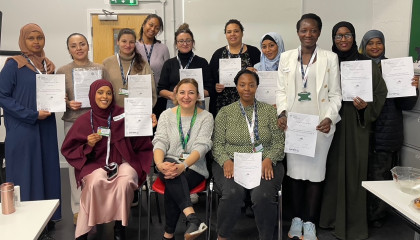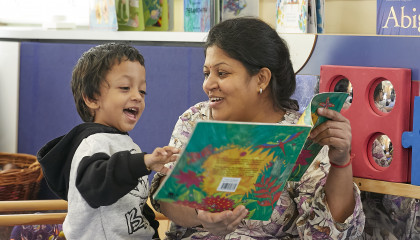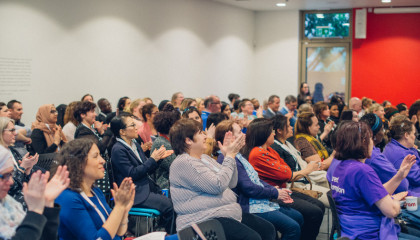You are here: Early education for looked after children has been a policy blind spot for too long
Only 18 per cent of looked after children in England get 5 GCSEs at grade C or above, compared to 64 per cent of their peers. This simply isn’t good enough and we need to be doing all we can to support the education of looked after children and close the gap.
Early education is an integral part of a child’s educational journey but is too often overlooked. Some two year olds, including all looked after children, and all three and four year olds are entitled to 15 hours of free early education. Attending high quality early education can help to narrow the achievement gap that opens before children start school and can help boost a child’s GCSE achievement by five grades. But its role in getting children ready for school goes far beyond knowing numbers and letters. The breadth of the curriculum for the early years is part of the reason for the success of provision. It includes supporting children’s personal, social and emotional development, for example helping children to manage their feelings and take turns when playing with other children.
It is particularly beneficial for disadvantaged children. While there has been much work on studying the impact for lower income households, we at Family and Childcare Trust were aware that the same attention was not being paid to looked after children. That’s why we formed a partnership with University of Oxford, supported by Nuffield Foundation, to find out more about looked after children’s experience of early education.
Our report, Starting out right: early education and looked after children, found examples of exceptionally good practice: local authorities working intensively with foster carers and early education providers to help children to access the highest quality provision, and providers able to respond to the higher needs that looked after children may present with.
But the picture is patchy. In too many areas, early education is not being prioritised, and there is poor awareness of the benefits of early education. Funding pressures that early education providers face can make it difficult for them to respond effectively to the additional needs of looked after children. Too often, foster carers and social workers struggle to access the high quality care that makes a difference.
The lack of central government attention to the issue is part of the problem. Currently, no national data is being gathered on attendance by looked after children. While data collection may seem like a technical point, unless we have information on who is attending and the quality of settings attended, it is hard to identify issues and take effective action. There is also no additional funding for education for looked after children in the early years.
In some cases, accessing the full early education entitlement might not be the right choice for two, three and four year olds, particularly for children who have faced disruption in their early years. However, our data found that looked after children are 14 per cent less likely to attend early years provision than children who are not looked after. 96 per cent of four year olds attend early education, which puts the small minority of children not attending at risk of being left behind their peers. We are concerned that the systems needed to make sure looked after children are able to access high quality provision when it is in their best interest are not in place.
There are a number of key opportunities for improvements to be made:
- Virtual schools could have their remit extended to the early years
- Better information and training could be provided for foster carers on the benefits of early education and how to access high quality provision
- The pupil premium ‘plus’ – the higher rate for looked after children – could be extended to early education
- There could be stronger mechanisms for decision making on each child’s access to early education, including carers, social workers and early years professionals
- Personal Education Plans (PEPs) could be adapted to the early years and used more widely to support learning
- Data could be collected and monitored on whether looked after children are attending early education and the quality of provision
We hope that this report helps to shine a spotlight on this issue, which has been a blind spot for too long. We want every child to be able to access the opportunities that early education can bring, particularly the most vulnerable.
More from our blog
Sign up to our newsletter
Get the latest news, research and resources from the Family and Childcare Trust.




